#EVs
Zoox Shows Off Robotaxi Prototype
Zoox, Amazon’s self-driving vehicle startup purchased over the summer, revealed a prototype robotaxi on Monday. The urban EV adheres to the familiar shuttle philosophy that has brought boxy mobility solutions to numerous towns around the globe. While these pilot programs have had mixed success at best, corporations see them as part of an on-demand future where everything is available by app.
Designed and manufactured in the United States, the Zoox vehicle is purpose-built for autonomy and offers bidirectional driving capabilities and four-wheel steering. However, we would be lying if we said the concept seemed terribly different from the earlier prototypes offered by May Mobility, Jaguar Land Rover, and over a dozen other companies that may not fit quite as neatly into the startup or legacy automaker pigeon holes.
Mercedes Reportedly Shipping the ESprinter Stateside in 2023
Mercedes-Benz is reportedly planning to bring an electric commercial van, presumably the eSprinter, to the United States as early as the third quarter of 2023. While the all-electric van launched earlier this year in Europe, the manufacturer said it wanted to hold off on North American exports for reasons that should be obvious to anybody familiar with the industry. The model’s rather low range (up to 96 miles, depending on load and route) makes it a poor fit for North America’s wide-open spaces, as does its standard 75 mph (or optional 50 mph) top speed. Meanwhile, the necessary homologation efforts required to sell the eSprinter in the U.S. would only increase the price of a vehicle already ill-suited to the nation’s roadways.
Were it to come here now, we’d be looking at a cargo van with an MSRP dangerously close to $60,000 and the top speed and range of a small-displacement dirtbike. Regulatory incentives aside, it doesn’t seem like a worthwhile addition to the North American landscape. But analysts are worried that Mercedes-Benz needs to get a move on and ensure the vehicle comes to the U.S. market before it’s edged out by the competition. It’s a position we’d be inclined to agree with had the eSprinter arrived with more robust specifications.
Report: Japan May Ban Internal Combustion Vehicles Next Decade
The Japan Broadcasting Corporation, better known as NHK, reported that the island nation is considering banning new internal combustion engine cars by the mid-2030s this week. While we will continue to maintain that such an effort seems unrealistic when confronting the current realities of the market, Japan’s alleged plan offers a bit more leeway than proposals pitched in parts of Europe and North America. Nippon also finds itself in a better position in the preferred mixed approach of allowing mixed powertrains, which would allow the industry to continue production gasoline-driven hybrids.
For starters, the Asian country has a fairly comprehensive hydrogen fueling network thanks to its small size. It’s also in a position that would make nationwide EV charging more feasible than regions with plenty of wide-open spaces. But automakers aren’t making a peep on the issue, preferring to leave it up to regulators and the market.
Hyundai Promises New EV Platform That Won't Have Terrible Range
If you feel like you’ve had your fill of news relating to electric cars, you’re not alone. Sadly, that’s just about all the industry is willing to let out of the bag right now. Whether you’re trying to pump staffers for information using sweet talk or waggling a crowbar in front of their face, they don’t have much else to discuss ahead of the holidays.
But that doesn’t mean there can’t be good news. Hyundai Motor Group, one of the few manufacturers that (mostly) hasn’t left us clenching our teeth when announcing decisions, has announced it’s building an all-new, electric platform that won’t have a laughably pathetic rang e. Unveiled in Seoul, South Korea, on Wednesday, the Electric-Global Modular Platform (E-GMP) promises sports-car levels of acceleration, outstanding flexibility, and production models boasting ranges in excess of 300 miles.
Volvo CEO Says Governments Should Just Ban Gasoline Powered Cars
Volvo Cars’ chief executive, Håkan Samuelsson, believes a ban on gasoline-driven vehicles would be a more effective way to force groups to go electric than continuing to offer subsidies on battery-powered automobiles. The announcement comes as part of the Financial Times’ “Future of the Car Summit,” where Samuelsson will proclaim the internal combustion engine “a technology of the past.”
In related news, Volvo Cars is also in negotiations to merge with China’s Geely Automotive and has renewed its commitment toward becoming an electric-only brand by 2030. The latter issue will also be brought up during Wednesday’s Car Summit, with the CEO praising the United Kingdom’s promise to eliminate the sale of new gasoline and diesel cars that same year.
What miraculously convenient timing.
VW Ends Racing Operations, Sends Team to Build EVs
Do you ever get the feeling that everything even remotely fun and interesting is being thrown on the pyre of progress so we can collectively live safer, duller lives? Case in point, Volkswagen is dismantling its racing operations so the 169 people it employed can be reincorporated. Responsible for the all-electric Volkswagen ID.R racer that showcased some of the performance advantages of EVs to attentive audiences around the globe, the team will now be responsible for building ID models intended for mass consumption.
While we’re sure spreading their engineering prowess around will benefit VW’s core brand, it’s unfortunate that it came at the expense of the brand’s motorsport activities — modest as they might have been in 2020.
Elon Musk Says EVs Will Double World's Need for Electricity
While electric automobiles have numerous advantages over internal combustion vehicles, we’ve often wondered when their disadvantages would be offset to a point that would make sense to have them become the dominant mode of transportation. While there are multiple issues that have to be addressed, one of the largest involves finding a way to source the kind of energy needed for the world to recharge them on a regular basis.
An EV-dominated society likely means elevated energy prices and peak demand hours that could easily overtax national energy grids. Renewable energy sources may also prove insufficient in providing the kind of power necessary — potentially requiring countries to double down on plants reliant on coal, oil, and natural gas if nuclear facilities are not approved. Counter-productive takes like that are often downplayed, however, so industrial giants can continue proclaiming the technology as largely trouble-free.
But what happens when EV royalty starts making similar claims about our collective energy needs?
GM No Longer Building Nikola Electric Pickup, Nixes Equity Stake
On Monday, General Motors and Nikola Corp announced a revamped agreement that eliminates an equity stake in the startup for the Detroit automaker and nixed any plan for manufacturing Nikola’s electric pickup truck. This makes the keystone of the revised contract their collaborative work on fuel-cell development, represents a major setback in their partnership, and makes GM management look like rubes for having announced a sizable commitment that had to be walked back after a short seller claimed Nikola was fraudulently representing itself.
Despite having much to gain by torpedoing the EV startup’s curiously high share price, the associated Hindenburg report raised serious questions about exactly how much progress Nikola had made. The short seller effectively accused the company of fraud, something Nikola denied. Though subpoenas from the Securities and Exchange Commission and Department of Justice still began arriving at its offices in late September. Founder and former executive chairman Trevor Milton stepped down around this period. At the time, the company said it was cooperating with the investigations “and will continue to cooperate, with these and any other regulatory or governmental requests.”
GM is Paying Cadillac Dealers to Ditch the Brand
Cadillac dealers disinclined to spend a sackful of money on revamping their businesses to sell and service electric vehicles received some moderately good news this month. General Motors is willing to issue them fat stacks of cash for stores that cannot rationalize the sizable expense of installing charging stations, training staff, and retooling the garage.
While it smacks of the consolidation efforts headed by Caddy’s former President Johan de Nysschen in 2016 with Project Pinnacle, and makes us wonder how the brand plans on turning a profit if it keeps eliminating storefronts, GM thinks buying out dealers who don’t want to participate in the EV experience is the way to go. Though the company has expressed an interest in gradually embracing a more digitized sales model as Cadillac strives to become an exclusively electric brand by 2030.
Volkswagen Passat Receives Date of Execution; VW Shifts Production Power Away From Lame Sedan
It’s been five weeks since I opined VW should cancel the Arteon and the North American Passat, and replace both with the European Passat instead.
Late last week, Volkswagen complied with part of my request. They must read TTAC!
Hyundai Being Sued Over Kona Electric Fires, LG Chem on Deck
Hyundai Motor Co. is being sued over a series of battery fires in its electric vehicles in Asia — specifically in relation to the otherwise-enjoyable Kona EV. Though it hardly seems fair to single out Hyundai when General Motors recently issued a recall encompassing 68,677 electric vehicles with batteries manufactured by LG Chem. Interestingly, Hyundai’s 74,000-strong Kona recall (which includes 11,082 units sold to the United States and Canada) uses the same supplier.
EV fires have become a hot topic within the industry, specifically because it runs the risk of slowing adoption rates and makes the affected automaker look wildly inept. Lawsuits don’t help the matter but Hyundai’s more immediate concerns involve proving that LG is the one that screwed up. While it hasn’t pointed any fingers directly at the supplier, it has dropped subtle hints while LG Chem insists its products are not defective. The duo is reportedly collaborating on an internal investigation into the troubled vehicles — 16 of which have burst into flames in North America, Europe, and Asia.
Progress, Thy Name is ZETA: New Electric Vehicle Lobbying Group Hits the Scene
If you think the political class is interested in what kind of policies citizens would like to see implemented, you’ve clearly never heard of lobbying groups. While we’re stuck at home writing thoughtful letters to congressional interns in the faintest hope that they’ll be dictated to a senator, corporately supported lobbyists are taking legislators out to dinner so they can discuss how best to govern on a single issue. They’re important in determining the trajectory of the nation but many get criticized for placing the needs of the business over that of the individual voter.
Buckle up, because we’re getting another one. On Tuesday, the Zero Emission Transportation Association (ZETA) held its own coming-out party and announced its mission to advocate for “national policies that will enable 100 [percent] electric vehicle sales throughout the light-, medium-, and heavy-duty sectors by 2030.”
Rivian's Retractable Camp Kitchen Costs $5,000
Electric-vehicle manufacturers often tout their products’ ability to double as a mobile generator for laborers needing a place to plug in their tools. But a few have also suggested a reliable power source would be similarly beneficial for recreational actives. In 2019, Rivian began showcasing the camp kitchen its designers had made fit into the gear tunnel located between the R1T’s truck bed and passenger cabin. Easily deployed, the kitchen comes with an electric stovetop, electric kettle, small sink (fed by a five-gallon water tank), and enough storage space to house the items necessary to cook and serve a meal.
It was looking like an incredibly slick option for woodsy weekend warriors — until we learned the price, that is.
Quebec Banning Gasoline Dependent Passenger Vehicles in 2035
On Monday, the Canadian province of Quebec announced it would be joining California and numerous European locales in the banning of gasoline-powered automobiles. Announced during a meeting regarding the region’s green economy plan, the French-speaking province said all new vehicles sold after 2035 would have to be entirely electric. Then there was a slight derailment as Premier François Legault used the occasion to publicly decry that it was “totally unacceptable” that some shop owners in Montreal are failing to greet customers in French and that the situation needed to be remedied immediately. Montreal Mayor Valérie Plante agreed, saying “clients must be able to get served in French. Period.”
One battle at a time, heroes. Justice will be served (and in glorious French) to those English-speaking heathens and their foul-smelling cars soon enough.
Reinventing the Wheel: Daimler Intentionally Becoming a Smaller Company to Facilitate Tech
Daimler Chairman Ola Källenius went against the grain on Thursday by admitting the company he’s been tasked with overseeing will become significantly smaller in five years. That’s normally not the kind of thing you want to telegraph to shareholders via the media but he’s convinced this is the best course of action for the business.
“The next five years we will become a smaller company,” Källenius told Reuters. “We will have a fundamental change in the industrial footprint on the powertrain side.”
The future of Daimler apparently involves a half-decade metamorphosis into a services-focused software company that just so happens to build vehicles. But the vehicles won’t be those internal-combustion jobs that you grew up around. Instead, they’ll be hyper-efficient electrics from Mercedes-Benz as it re-imagines luxury within the strict confines of environmental sustainability. As a byproduct, Daimler will need fewer employees to help manufacture automobiles.



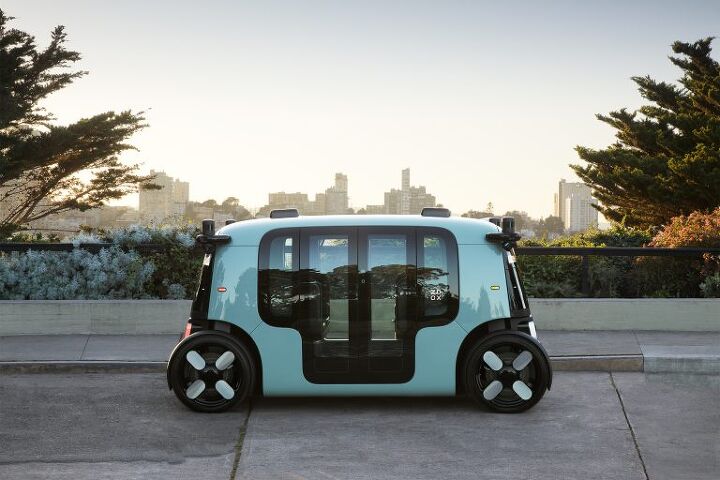
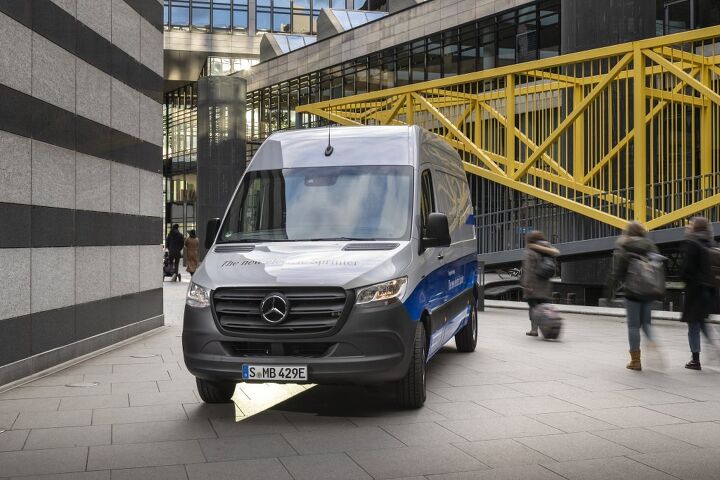

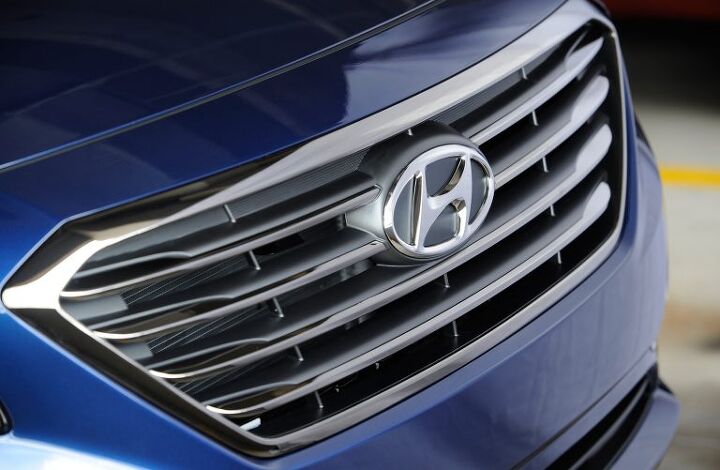
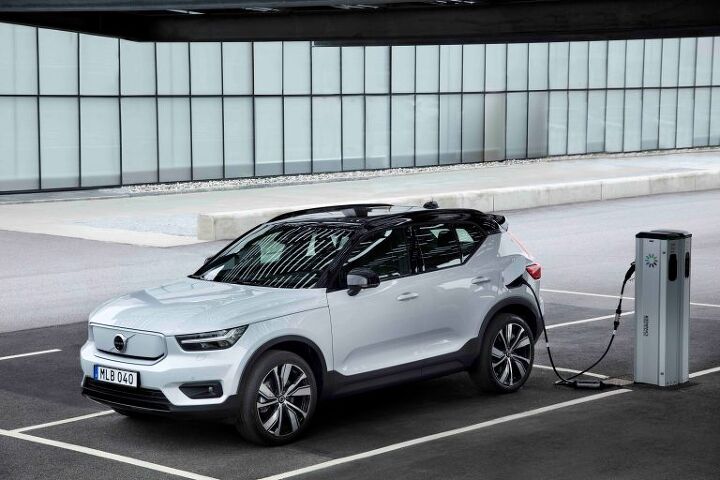



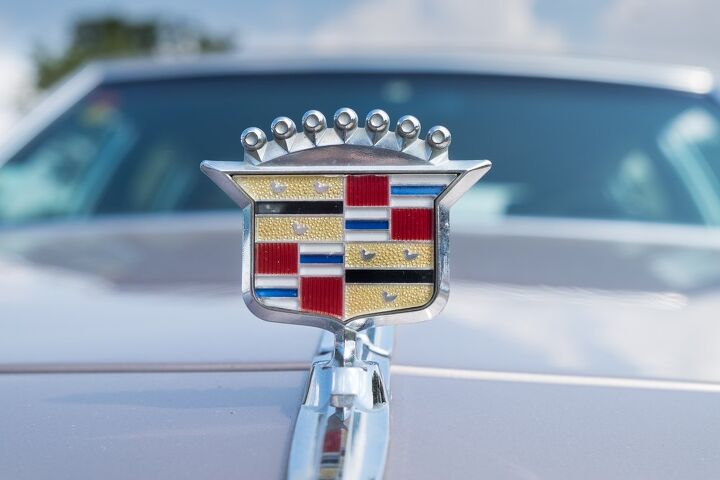

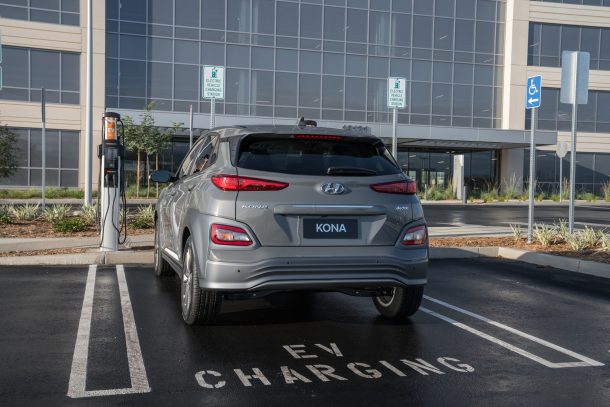
















Recent Comments